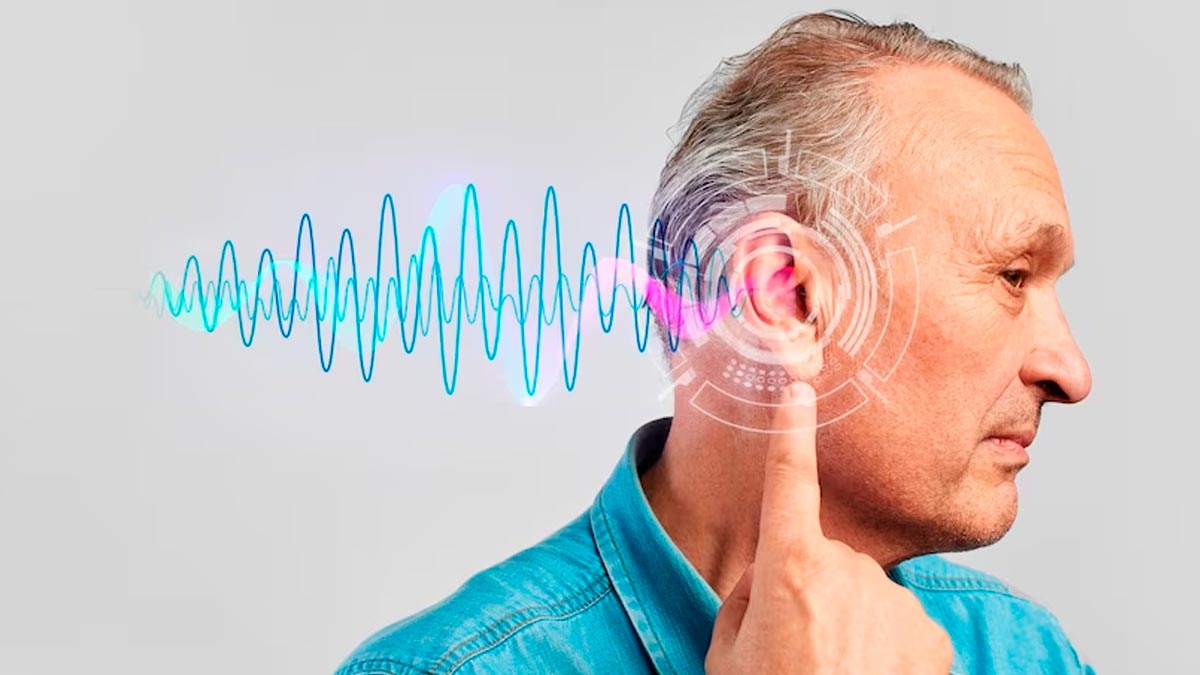What is a tinnitus test and how is it performed?


What is a tinnitus test and how is it performed?
8 m
Publication Date March 12, 2024
Revision Date March 12, 2024
Tinnitus is a common condition that affects more than 740 million adults globally and is perceived as a major problem by more than 120 million people, mostly aged 65 years or older. In 2019, an estimated 37% of adult Canadians (9.2 million) had experienced tinnitus; it was bothersome for 7% of the population. Tinnitus was associated with poor self-reported mental health, mood disorder, a weak sense of community belonging, high daily stress, and poor-quality sleep.
What is tinnitus?
Tinnitus is not a disease, it is a symptom of another underline issue instead of being a stand-alone condition. It is almost always referred to as "ringing in the ear," but the sounds you may hear can be diverse, including hissing, roaring, buzzing, or clicking. People with tinnitus perceive a noise or sound that is not audible to anyone else because there is no outside source.
The degree to which people experience tinnitus symptoms can also vary from person to person. For some, the sounds appear temporarily, while for others, it can be a chronic issue. When tinnitus is connected to hearing loss, hearing care professionals recommend hearing aids to provide relief.
What are the different types of tinnitus?
People experience tinnitus sounds in many different ways; there are various types of tinnitus. The main types are:
- Subjective tinnitus is the most common form that typically results from excessive noise exposure or aging-related hearing loss. It is not uncommon for this type to develop suddenly and stick around for three to twelve months. For some people, the symptoms can last even longer; occasionally, they never stop.
- Objective tinnitus is a rare type generally caused by vascular deformities and can be heard by someone other than the person affected.
What are the most common underlying health conditions of tinnitus?
It is important to realize that tinnitus is simply a sign or symptom of something else that is going on in the body. Quite often, ringing in the ear results from damage to the auditory system. But while hearing loss is frequently associated with the condition, hundreds of other disorders are also linked to it.
- Sensorineural hearing loss (age-related or noise-induced)
- Blockage in the ear canal (e.g., middle ear obstruction due to excessive earwax)
- Severe injury to the head or neck
- Temporomandibular joint (TMJ)
- Nasal congestion and sinus pressure
- Traumatic brain injury (TBI)
- Ototoxic drugs (non-steroidal anti-inflammatory drugs and certain antibiotics)
Other medical conditions that could potentially be the root cause of tinnitus are:
- Vestibular disorders such as Ménière's disease, otosclerosis
- Metabolic disorders such as hypothyroidism
- Psychiatric disorders such as depression and anxiety
- Autoimmune disorders such as Lyme disease
- Blood vessel disorders such as high blood pressure
- Tumor-related disorders (very rare) such as acoustic neuroma
Although the list of potential health issues linked to tinnitus is quite lengthy, having ringing in the ear does not automatically mean that you have any of the above disorders. Therefore, it is critical to seek medical help. After the root of the cause is identified, a treatment plan will be recommended.
Are there any tests for tinnitus?
Keep in mind, pitch matching is not a substitute for a professional medical diagnosis.
How do you confirm tinnitus?
Although online tests will give you an initial assessment of your hearing, correctly diagnosing tinnitus takes a more comprehensive approach. Make an appointment with a hearing care professional and undergo the necessary tests to get a definitive diagnosis.
Conclusion
Although there is no cure for tinnitus symptoms, they can be managed. A tailored therapy recommended by a knowledgeable hearing professional will likely deliver positive results and provide relief. In addition, new treatment options come up every day, making this condition easier to treat than ever before. If you have hearing loss, be sure to get a regular hearing test. You can also start with an online hearing test.
The information contained in this article is for educational and informational purposes only. You should not use the information as a substitute for, nor should it replace, professional medical advice. If you have any questions about your health, you should always consult with a physician or other health-care professional.
Author information
Dmytro Segal, DO
Radiologist, Own Practice